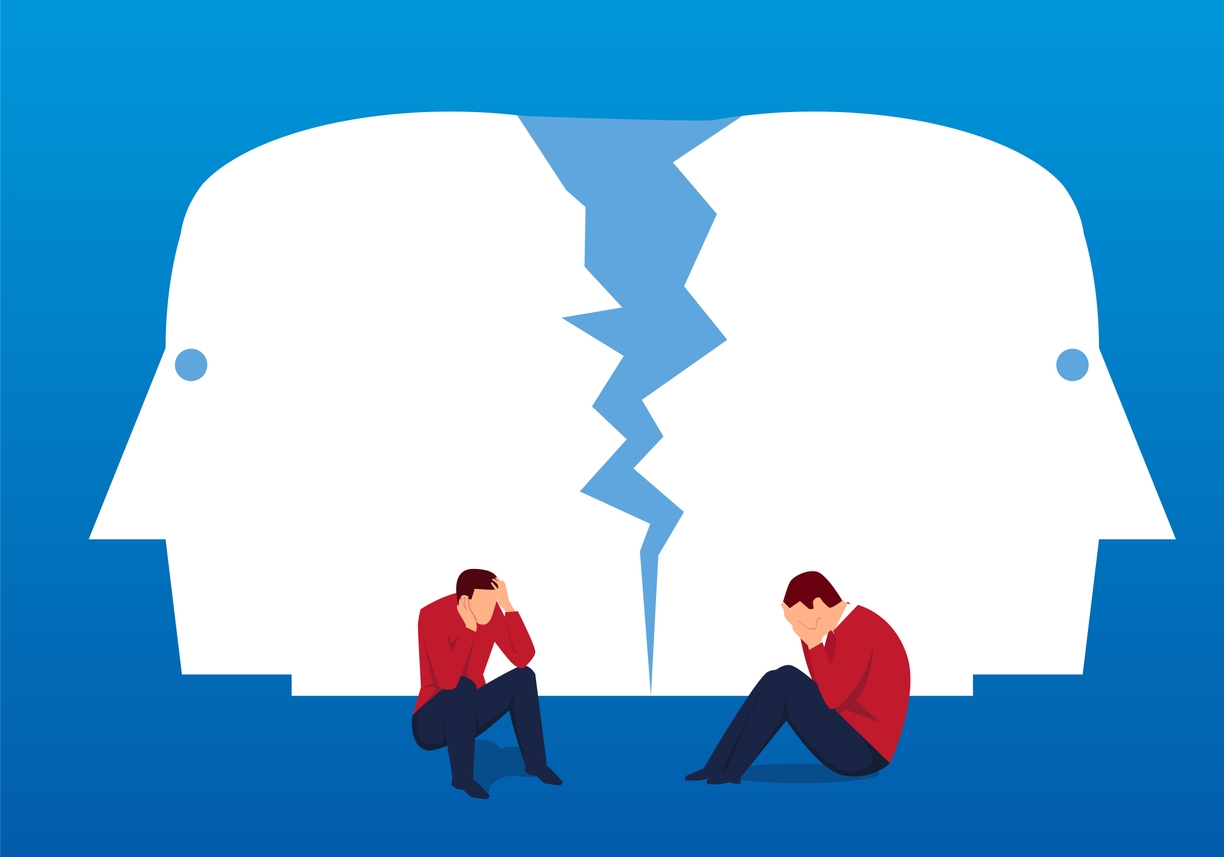Watching a friend go through a bad breakup is tough. You might know firsthand just how painful it can be and all the drama that can ensue. Even “easy” breakups are hard. But sometimes things can get downright messy. Your friend may tell you that everything is fine and that they just want to be left alone—but should you? Shouldn’t friends be there for friends when they are hurting?
“If you have ever been heartbroken over a relationship, you know the feeling is lousy,” says Errol Moodie, program manager at Crossroads: The Manhattan Young Adult Clinic in New York City. “You know what your friend is going through and might want to offer advice. But at the same time, now is the moment you want to be a friend, not a therapist.” Here are some suggestions on how to give your friend support right now.
Ask, Then Listen
When you see a friend who’s hurting, it’s natural to feel like you want to fix the problem. You want your friend back! Plus, you want your friend to be happy again because when you care about someone and they are hurting, it affects you, too. But the thing is, it’s not your problem to solve. Only your friend can work through this situation. And the longer the relationship lasted, the longer it can take to heal. What you can do, though, is ask questions and listen. Being able to talk about what’s going on—even if it involves tears—can feel really good to someone going through a breakup.
What to Ask?
Finding the exact words can be daunting. You don’t want to say the wrong thing and upset your friend even more! Start with something simple: “I know this sucks and I want to be there for you.” If you and your friend often joke around, you could also add a little humor, saying something like, “I guess this leaves more time for you and me to hang out more.” Sometimes keeping things light is the way to go.
Next, ask what you can do to help during this time. Try saying something like, “What can I do to support you? What do you need from me?” Don’t worry about having solutions; it’s actually better to ask open-ended questions. “This will get your friend talking about the breakup and what’s going on,” Moodie says. You could ask how they’re feeling about the breakup. If your friend doesn’t want to talk about it or isn’t sure how you can help, that’s OK. People don’t always know what will make them feel supported. It still feels good just knowing they have a friend on their side if and when they need help.
What Not to Say
Offer empathy, not advice. Sure, you may have been through your own nightmare breakups. But every situation is different and nobody wants a lecture (even though you are trying to be helpful) or to feel like they’re being judged. Your friend is looking for a friend right now, not a relationship coach!
If you’re trying to get a conversation started, avoid asking yes or no questions, which prompts short answers and could keep your friend from opening up. (Those type of questions can also make it appear like you are prying, even though that’s not your intent.)
It’s also best to focus on your friend’s feelings, rather than getting too judgy about their ex. You never know—the two of them could get back together and then you’ll be in an awkward spot. This is about what your friend is going through and how to make your friend feel better, not what’s up with their ex.
How to Deal with Bad Moods
Everyone reacts to a breakup differently, but it’s normal for your friend to feel down. Ending a relationship means losing someone special (even if right now they don’t seem so special!). If they spent a lot of time together, your friend’s normal routine is also suddenly thrown out of whack, just at the moment when routines can be comforting.
Allow your friend the space to be sad, but also remind them what an awesome person they are, with or without their ex. Invite them to see a movie, or go for a walk, or attend a local sports game—anything that puts the focus on something other than the breakup for a little while. “You can’t take away the sadness, but you can help keep things upbeat,” says Moodie.
Red Flags to Watch For
If your friend wants to be left alone, leave them alone. You’ve been there, too. Tell them you want to be sure they’re OK, so you’ll check in with them after a set amount of time, whether that’s 30 minutes or 24 hours. But if your friend is talking about self-injury or suicide, do not leave them alone. Call your parents, their parents, or another trusted adult immediately—good options include a guidance counselor, coach or your rabbi. If you can’t reach anyone or don’t feel like your concerns aren’t being taken seriously, call 911. Your friend’s safety is more important than worrying you might be overreacting.
Most of the time though, people get over the end of a relationship in a few weeks or a month or two. Slowly, your friend will get back to normal, and the two of you can look forward to new adventures and relationships together.
Special thanks to our expert:
Errol Moodie, program manager at Crossroads: The Manhattan Young Adult Clinic






